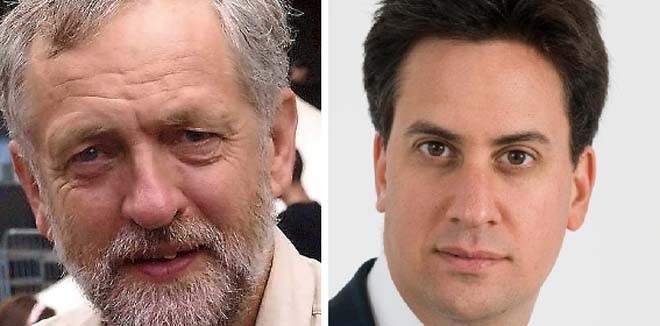
Among all the leadership candidates for Labour Party, Jeremy Corbyn has caused a major stir within the party as well as among the people

In the just concluded British general election, the British Labour Party got the worst drubbing of the decade, falling to 232 seats, 26 seats less than its 2010 election tally. The scale of the defeat was such that the party leader, Ed Milliband, had to resign immediately, taking full responsibility for the party’s poor performance.
This has triggered election for the leadership of the party. Within days of Miliband’s resignation, many leadership aspirants came forward to announce their candidacy. By the first week of June, the field was winnowed down to three contestants: Andy Burnham, Liz Kendall and Yvette Cooper. Both Andy Burnham and Yvette Cooper served in ministerial position in the last Labour cabinets.
Liz Kendall is a relatively new entrant to the parliamentary Labour Party, making her parliamentary debut in 2010. Andy Burnham, the ex-health secretary is being portrayed as candidate of the soft left while Liz Kendall represents Blairite faction of the party. Yvette Cooper is struggling to define her as a centrist candidate. This line-up of mainstream candidates was given a shake-up when the veteran left-winger, Jeremy Corbyn, threw his hat into the leadership ring.
Corbyn’s decision to join the Labour leadership contest caused a considerable stir in the Labour Party and beyond. His late entry into the leadership stakes was further hamstrung by the requirement of rustling up at least 35 nominations from members of the Labour parliamentary party to be able to go on the ballot for the leadership. This seemed a tall order given the hostility of the mainstream media to the prospect of a veteran left-winger being in the leadership race. Backed up by a grass-roots campaign Corbyn was able to gather the required 35 nomination minutes before the close of the deadline. This was achieved largely thorough a massive grass-roots campaign among Labour Party members who put pressure on their MPs to nominate Corbyn for the leadership election.
Read more: Left, right
One of the theories doing the round is that front-runner Andy Burnham has lent a few of his nominations to Jeremy Corbyn in order to have a far-left candidate in the race. Irrespective of the veracity of this claim, Corbyn’s candidacy has added new energy to the Labour leadership contest which had looked set to be a drab affair. It has created widespread stir within the Labour Party evidenced in more and more ordinary people joining the party and Corbyn’s social media campaign.
In one newspaper survey, Corbyn has polled far ahead of his rivals among grassroots members of the Labour Party. This development augurs well for broadening the debate within the Labour movement -- one of the reasons which actuated Corbyn to put himself forward as a candidate of the left.
Jeremy Corbyn is a veteran Labour Member of Parliament (MP) for Islington North constituency in London since1982. Islington North is a multi-cultural constituency. And he has worked assiduously for his constituents over the years. The result has been a steady increase in his parliamentary majority, reaching a whopping 21000 in the 2015 election. He has espoused progressive causes with unmatched consistency and passion. In pursuit of his pet passion for justice, equality and peace, he has not hesitated to defy the party whip. He has done so more than 500 times in his parliamentary career spanned over more than 30 years.
Jeremy Corbyn has the rare distinction of proving right on most big issues of the day. He was the first MP who invited the pariah leader of Sinn Fein, Jeremy Adams to the House of Commons when it was highly unpopular to do so. Within years, the Conservative Party came round to the idea of opening up lines of communication to Sinn Fein which led to a radical reordering of politics in Northern Ireland.
Jeremy Corbyn has remained one of the most outspoken critics of the British involvement in Iraq and Afghanistan. He is also one of the founders of Stop the War campaign which has chairs now. Unlike many politicians, he has worn his socialism up his sleeves and he lets no opportunity pass by to say so. That makes him the most authentic candidate among the leadership contestants. No wonder Corbyn’s leadership bid has attracted unprecedented interest from ordinary, decent and fair-minded British people. More and more people -- with the youth forming a good proportion of them -- are joining the Labour Party to be able to have their say on the election of the leader.
Jeremy Corbyn may not be able to win the election against the wishes of the party machine and the mainstream press dead-set against a left-wing candidate winning the leadership of the Labour party. But in the process he is set to radically energise the party’s left-wing base and socialist agenda within the party. And the way things are progressing he may even cause an unexpected upset. The leadership contest closes in September.